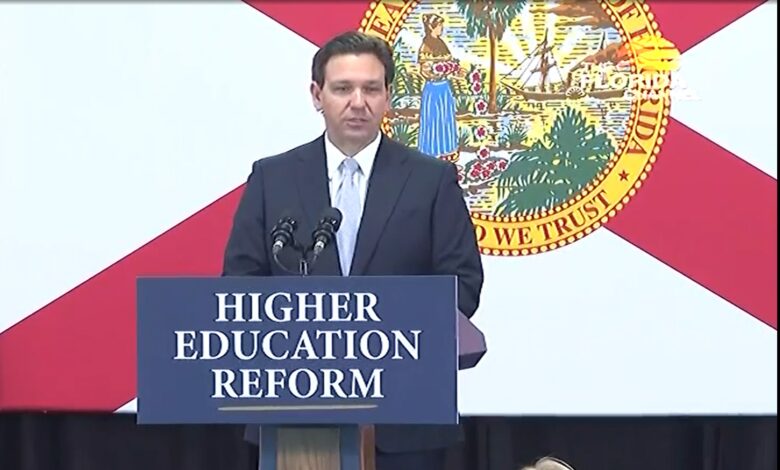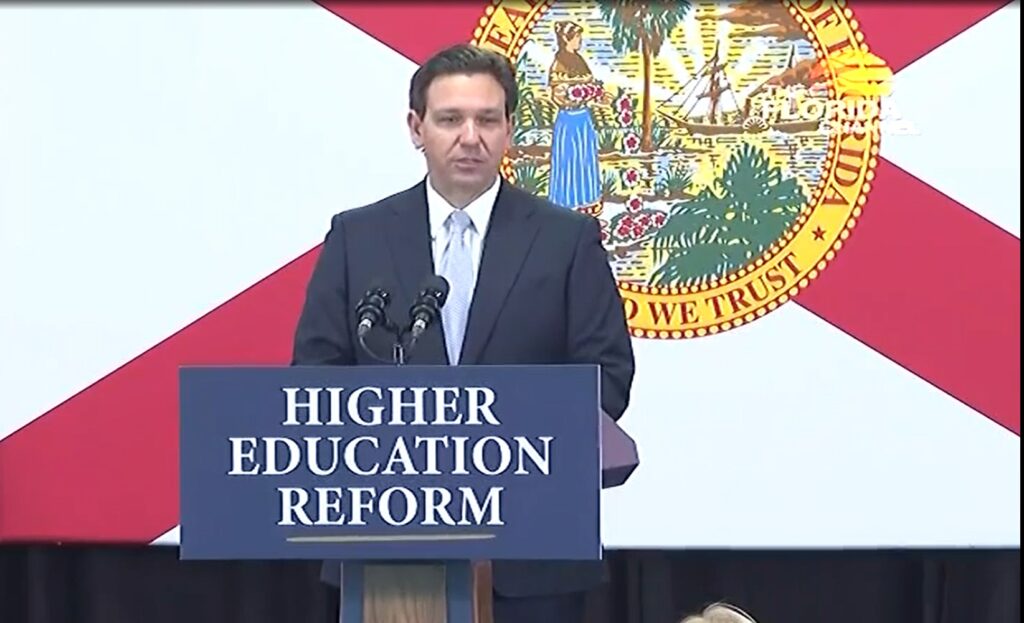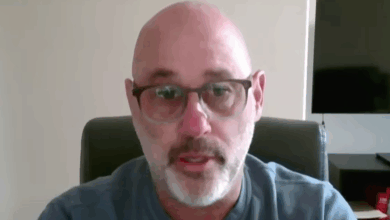Republican Led States are pushing to Ban Funding for Diversity, Equity, and Inclusion (DEI)


Florida’s public universities are places where students are meant to explore a variety of viewpoints and political beliefs, often for the first time. However, experts are warning that academic freedom could become scarce if a new bill regulating higher education in the state passes.
The bill in question is House Bill 999, introduced by Republican Representative Alex Andrade on February 21. It would ban any funding for diversity, equity, and inclusion (DEI) initiatives at Florida’s state universities, even if the funding is from private sources. University trustees would be responsible for faculty hiring decisions, while university presidents would only be allowed to make recommendations. The bill also proposes that tenure status could be reviewed at any time and calls for the rewriting of university mission statements.
The bill would ban general education courses that teach “curriculum based on unproven, theoretical, or exploratory content,” and those that define “American history as contrary to the creation of a new nation based on universal principles stated in the Declaration of Independence.”
In addition, entire majors would be banned, including those related to Critical Race Theory, Gender Studies, and Intersectionality. African-American studies departments at public institutions throughout the state would also be vulnerable. “It is the most draconian bill that we’ve seen in the entire country relating to higher education,” warns Jeremy Young, a researcher of free speech and culture war issues at PEN America. “We are absolutely concerned about copycat bills in other states and about this spreading to be a national movement…I think it is very likely that this bill will pass in something very close to its current form in Florida, but it’s never a sure thing.”
Young adds that the bill is consistent with Governor Ron DeSantis’s higher education agenda, which calls for the banning of “discriminatory” DEI initiatives. In fact, a version of this bill is already being played out in real-time, with DeSantis appointing six conservatives to the board of the New College of Florida in Sarasota back in January. They are leading an overhaul of the small public liberal arts college.
DeSantis kicked off his very public fight against “woke indoctrination” last spring when he signed into law the Stop WOKE Act, which aims to regulate how racism is discussed in schools and workplaces (though a federal judge struck down the provision pertaining to private businesses). At the time of publication, DeSantis has not made a public statement on House Bill 999.
However, the bill is unique compared to other measures in Florida, according to Young. If House Bill 999 passes, Florida’s public colleges and universities could see a brain drain, with faculty leaving and colleagues unwilling to take over their jobs. The institutions could also lose their accreditation status, jeopardizing federal student financial aid. Currently, 83% of college students receive some form of financial aid.
Florida’s major public universities are among the biggest in the country. The University of Central Florida in Orlando has around 68,000 students enrolled, the University of Florida in Gainesville has some 61,000 students, and Florida International University in Miami boasts about 56,000. Young worries that if House Bill 999 passes, students at Florida’s public universities and colleges would not be adequately prepared to participate in the global economy. “College is one of the last bastions of free inquiry and open conversation in this country,” he says. “And if you restrict that in the way that this law would do, you’re going to have a citizenry that is unprepared to engage in the democratic process. And so this really is a democracy attack.”
Furthermore, experts have raised concerns about the potential impact of the bill on academic freedom, with some fearing that it could lead to a brain drain of faculty leaving, as well as colleagues unwilling to take over their jobs. It could also lead to the loss of accreditation status for universities in Florida, which would jeopardize federal student financial aid for the approximately 83% of college students who receive some form of financial assistance.
Young worries that if House Bill 999 passes, students at Florida’s public universities and colleges would not be prepared to participate in the global economy. “College is one of the last bastions of free inquiry and open conversation in this country,” he says. “And if you restrict that in the way that this law would do, you’re going to have a citizenry that is unprepared to engage in the democratic process. And so this really is a democracy attack.”
Governor DeSantis has been vocal in his opposition to “woke indoctrination” and has been actively pushing for policies that ban “discriminatory” DEI initiatives. In fact, a version of this bill is already playing out in real time. Back in January, DeSantis appointed six conservatives to the board of the New College of Florida in Sarasota, who are leading an overhaul of the small public liberal arts college.
While Florida may be at the forefront of this kind of legislation, it is not the only state grappling with similar issues. Several other states have recently introduced bills that seek to restrict or ban the teaching of critical race theory in schools and universities. In fact, some states, such as Idaho, Oklahoma, and Texas, have already passed laws banning the teaching of critical race theory in their public schools.
Critics argue that these bills are an attempt to suppress conversations about race and racism, and stifle efforts to promote diversity, equity, and inclusion. They argue that by banning courses on gender studies, critical race theory, and intersectionality, lawmakers are attempting to erase the experiences and histories of marginalized communities.
In response to these bills, several organizations, including the American Civil Liberties Union (ACLU), have launched campaigns to challenge them in court. The ACLU has argued that these bills violate the First Amendment’s guarantee of free speech and academic freedom, as well as the Equal Protection Clause of the Fourteenth Amendment.
House Bill 999 has been described as one of the most draconian bills relating to higher education that has been seen in the entire country. If passed, it would have significant implications for Florida’s public colleges and universities, potentially leading to a brain drain of faculty and students, as well as the loss of accreditation status. The bill has been criticized for being an attempt to suppress conversations about race and racism and stifle efforts to promote diversity, equity, and inclusion. It remains to be seen whether the bill will pass in its current form, but the debate surrounding it highlights the ongoing tension between those who seek to promote diversity and inclusion and those who seek to limit such efforts.





